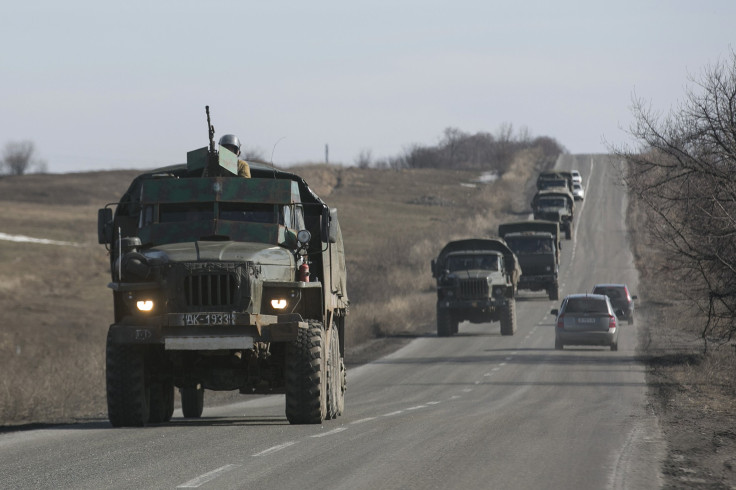Ukraine Struggles To Identify Dead Soldiers, Thousands Of Troops Missing As Rebels Continue Fighting

Roughly 1,500 Ukrainian soliders have been reported missing in action and military leaders are urging family members to help them identify the bodies of those killed during the monthslong conflict with Russian-backed separatists in eastern Ukraine. Yury Tandit, chairman of the Prisoner Exchange Assist Center, told Ukraine’s 24 TV channel that relatives of the missing soldiers need to be patient.
“The most important is that blood relatives pass DNA analyses -- that really helps. This way we find bodies and fragments. It is essential to find a person in whatever condition, dead or alive; we ought to know who is where,” Tandit said.
More than 5,400 people have died since the conflict began, with a surge in casualties in recent days as 263 civilians were killed since Jan. 31, according to BBC News. The bodies of some deceased soldiers in the rebel-controlled regions haven't been recovered because both sides are worried about mine traps and triggering explosives. Recent media reports from Ukraine include images of the bodies of Ukrainian soldiers on stretchers before they were removed from the frontline. Nearly a million people have been forced from their homes because of the war.
A ceasefire brokered this month by European Union leaders between the rebels and the Ukrainian government hasn't stopped the fighting, with rebels mounting attacks in Debaltseve, a railroad hub, and Mariupol, a strategic port, in recent days. The U.S. and other Western leaders were weighing new sanctions against Russia.
U.S. Vice President Joe Biden said he "strongly condemned the violation of the ceasefire by separatist forces acting in concert with Russian forces, in and around the town of Debaltseve," the BBC reported.
Rupert Colville, spokesman for the U.N. High Commissioner for Human Rights, said the U.N. was alarmed by reports of continued shelling. "We are particularly concerned about the civilians trapped in the area. We believe there may be a few thousand hiding in cellars, struggling to get food, water and other basic necessities," he said.
© Copyright IBTimes 2024. All rights reserved.












